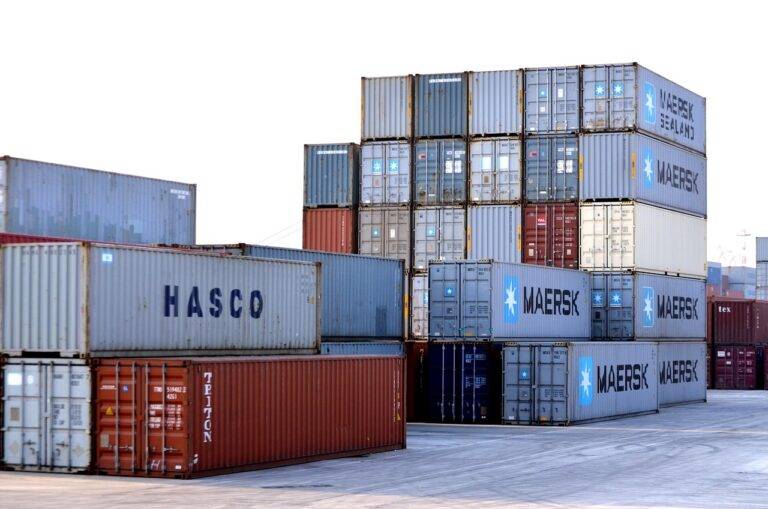Assessing the Business Impact of Geopolitical Tensions on Aerospace Trade: Betbhai9, Playexch in login, Lotus365 in login password
betbhai9, playexch in login, lotus365 in login password: Assessing the Business Impact of Geopolitical Tensions on Aerospace Trade
In today’s interconnected world, geopolitical tensions can have far-reaching effects on various industries, and the aerospace sector is no exception. With countries engaging in trade wars, imposing tariffs, and implementing sanctions, the business impact on aerospace trade can be significant. In this article, we will explore how geopolitical tensions can affect the aerospace industry and what companies can do to mitigate risks and capitalize on opportunities.
The Complexities of Aerospace Trade
The aerospace industry is inherently global, with companies relying on complex supply chains that span multiple countries. From manufacturing components to assembling aircraft to delivering finished products, every step of the process involves international cooperation. As a result, any disruptions to these global networks can have profound implications for the industry.
Geopolitical tensions can impact aerospace trade in several ways:
1. Tariffs and Trade Barriers: When countries impose tariffs on aerospace products, it can increase the cost of doing business and make it harder for companies to compete in international markets.
2. Export Controls: Governments may restrict the export of certain aerospace technologies and products to other countries, limiting market access and hindering global expansion.
3. Sanctions: Political tensions between countries can lead to the imposition of sanctions, which can restrict trade and investment in the aerospace sector.
4. Political Instability: Civil unrest, regime changes, and geopolitical conflicts can disrupt supply chains, disrupt operations, and create uncertainties for aerospace companies.
5. Currency Fluctuations: Exchange rate fluctuations can impact the cost of doing business for aerospace companies operating in multiple countries, affecting profitability and competitiveness.
Navigating Geopolitical Risks
Given the complexities of aerospace trade and the potential risks posed by geopolitical tensions, companies in the industry must be proactive in managing these challenges. Here are some strategies that aerospace companies can implement to navigate geopolitical risks effectively:
1. Diversify Suppliers: To mitigate the impact of trade disruptions, aerospace companies should diversify their supplier base across different countries and regions.
2. Monitor Regulatory Changes: Stay informed about changes in export controls, tariffs, and sanctions that could affect aerospace trade and adjust business strategies accordingly.
3. Build Strong Relationships: Cultivate strong relationships with government officials, industry associations, and other stakeholders to stay abreast of geopolitical developments and advocate for the interests of the aerospace sector.
4. Enhance Risk Management: Develop robust risk management processes to identify, assess, and mitigate geopolitical risks that could impact aerospace trade.
5. Invest in Innovation: Focus on innovation and R&D to develop new technologies and products that can reduce reliance on international supply chains and enhance competitiveness in the global market.
6. Stay Agile: Be prepared to adapt quickly to changing geopolitical dynamics and adjust business strategies to minimize disruptions and capitalize on emerging opportunities.
By proactively addressing geopolitical risks and uncertainties, aerospace companies can better position themselves to navigate the complexities of international trade and achieve long-term success in a rapidly evolving global landscape.
FAQs
1. What are some recent examples of geopolitical tensions impacting aerospace trade?
Recent examples of geopolitical tensions impacting aerospace trade include the trade war between the US and China, the sanctions imposed on Russia following the annexation of Crimea, and the Brexit negotiations affecting the aerospace industry in the UK and Europe.
2. How can aerospace companies assess the geopolitical risks they face?
Aerospace companies can assess their geopolitical risks by conducting thorough risk assessments, monitoring geopolitical developments, engaging with industry experts, and seeking advice from legal and regulatory professionals who specialize in international trade and security.
3. What are some best practices for managing geopolitical risks in the aerospace industry?
Some best practices for managing geopolitical risks in the aerospace industry include diversifying suppliers, monitoring regulatory changes, building strong relationships with stakeholders, enhancing risk management processes, investing in innovation, and staying agile in response to changing geopolitical dynamics.
4. How can aerospace companies capitalize on opportunities amid geopolitical tensions?
Aerospace companies can capitalize on opportunities amid geopolitical tensions by identifying emerging market trends, developing innovative products and services, expanding into new markets, and forming strategic partnerships with other companies in the industry.
In conclusion, the aerospace industry faces unique challenges and opportunities amidst global geopolitical tensions. By adopting proactive strategies, staying informed about regulatory changes, and building strong relationships with stakeholders, aerospace companies can navigate these challenges effectively and position themselves for long-term success in the ever-changing global marketplace.







